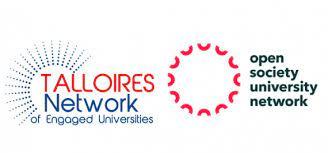
https://talloiresnetwork.tufts.edu/communiversity/
Talloires Network members have placed engagement at the center of their mission, and they champion engaged research and learning methods.
Civically engaged universities work in partnership with local communities and institutions, aiming to strengthen the society of which they are part. In contrast to the idea of the ivory tower, a term that connotes distance, the engaged university actively confronts pressing societal problems such as climate change, xenophobia, disease, and political instability. Such problems are matters of human well-being and planetary survival; they cannot be remedied by technical approaches alone.
Civically engaged universities blend conventional and unconventional research and learning methods; they balance and integrate technical and rational approaches to research and learning with approaches that are situational and contextual; they call into question the notion of expertise as a limited resource, encouraging interaction and learning among university faculty, staff, students, refugees, indigenous peoples, children, women, and the elderly. They recognize multiple ways of knowing and multiple ways of representing their collaborative learning and research outcomes.
Grants
Talloires Network of Engaged Universities and Open Society University Network (OSUN) have awarded 24 grants to faculty and graduate students in 14 countries to support their engaged scholarship. Affiliated with OSUN and TN member institutions, the faculty and graduate students are working to develop long-term, sustainable community partnerships as a central part of their research, with a goal to develop shared knowledge about issues that align with OSUN and TN priorities.
Learn more about the 2022 recipients!
Workshops
In partnership with the Open Society University Network (OSUN), the Talloires Network (TN) has organized a series of 2-hour, online workshops to support engaged scholars who have an interest in community-university research. Workshops will be led by leaders in the field of university civic engagement around the world and held each month from February 2022 through August 2022. Workshops will be available to OSUN and TN members free of charge.
Workshops will highlight innovative community-university research in communities around the world such as Malaysia, the United States, Lebanon, Bangladesh, Uganda, Ghana, and Austria. Presentations by engaged scholars will address the following questions:
- How do engaged scholars collaborate with communities to co-design and implement engagement programs?
- In what ways do community members contribute to the engaged scholarship?
- In what ways does engaged scholarship contribute to building civic values and skills for students?
- How might engaged scholarship impact students’ choices about career path or future involvement in their community?
- To what extend has the engagement program positively affected the community?
- How does one assess engaged scholarship?
- How do engaged scholars present their achievements at the time of promotion or career transition?
- In what ways are universities adapting internal review processes to reward engaged scholarship?
- What are the key elements for a successful long-term university-community partnership?

Past Workshops:
Engaged Research – Strengthening Community Partnerships (University of Pretoria, South Africa)
Thursday, 11 August 2022,
8:30 - 10:00 AM EST
Watch the workshop below!
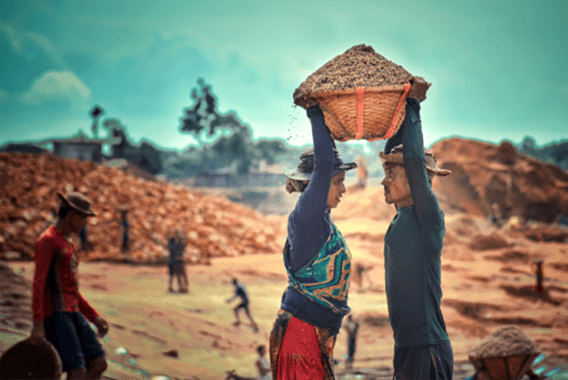
Community-Based Research in an Emergency Context with BRAC University (Bangladesh)
8:00 am – 10:00 am EST
This workshop features the BRAC University Centre for Peace and Justice's (CPJ) unique research approach for amplifying community voices in the emergency setting of Cox’s Bazar. The session will showcase how CPJ created a Trust Network amid Cox's Bazar Rohingya refugee and host communities to engage people with research activities and strengthen the capacities of local researchers to document knowledge. The session will also delineate how local researchers are monitoring social differences, emerging concerns and people’s perspectives via a WhatsApp Chat Hour and Pod Analysis. The aim of sharing such insights and experiences is to enable the global research community to adapt their techniques and methodology. Learn more here!
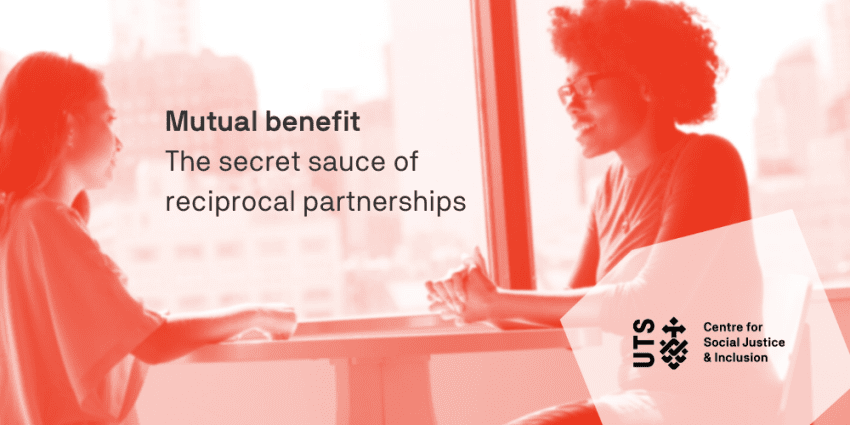
Mutual Benefit: The Secret Sauce of Reciprocal Partnerships
May 11, 6:00PM EDT UTC-4
(May 12, 8:00AM Australian Eastern Time)
Watch the recording below!
University of Technology Sydney’s Centre for Social Justice & Inclusion is home to sector-leading programs for community engagement. As a 21st century institution, we strive for meaningful, equitable and impactful collaboration with the communities, grounded in reciprocity.
The UTS Social Impact team have experienced the challenges and benefits of long-term relationship building through its programs:
- UTS Shopfront, running since 1996, offers work-integrated-learning in non-profits
- UTS SOUL Award provides extra-curricular volunteering and pathways for student action
- The Social Impact Lab engages local communities on wicked issues affecting society
From this experience, the team have identified a key attitude and approach that have allowed them to develop long-term partnerships that have real impact across multiple contexts. This approach has proven vital through the disrupted COVID period and has allowed our university to be quick to adapt and to take meaningful community engaged action in response to a crisis.
If your teaching practice or research involves community members, join us to hear our approach to creating long-term sustainable positive change through your work.
Thursday, April 14, 2022
9:00 am – 11:00 am EDT
Watch the workshop below!
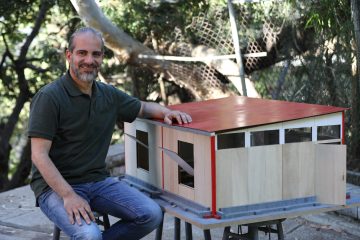 Rabih Shibli is the Director of the Center for Civic Engagement and Community Service (CCECS) and a lecturer in Public Policy and International Affairs (PPIA) at the American University of Beirut (AUB). Under his directorship, CCECS has been awarded the Most Civically Engaged Campus by Ma'an Alliance 2015, MacJannet Prize for Global Citizenship 2016, SXSW Learn by Design Honorary Award 2018, and the Fritz Redlich Global Mental Health and Human Rights Award 2018. He has conceptualized and implemented community projects and authored publications reflecting the process of bridging developmental planning and experiential learning. Rabih holds a BA in Architecture, MA in Urban Design, and a Program Certificate in Refugee Trauma.
Rabih Shibli is the Director of the Center for Civic Engagement and Community Service (CCECS) and a lecturer in Public Policy and International Affairs (PPIA) at the American University of Beirut (AUB). Under his directorship, CCECS has been awarded the Most Civically Engaged Campus by Ma'an Alliance 2015, MacJannet Prize for Global Citizenship 2016, SXSW Learn by Design Honorary Award 2018, and the Fritz Redlich Global Mental Health and Human Rights Award 2018. He has conceptualized and implemented community projects and authored publications reflecting the process of bridging developmental planning and experiential learning. Rabih holds a BA in Architecture, MA in Urban Design, and a Program Certificate in Refugee Trauma.
Join Dr. Shibli for his presentation on the role of CCECS at AUB in leveraging operational research, campus community, and socially responsive partnerships to tackle the most pressing societal challenges facing Lebanon, and beyond. With an overarching agenda to integrate developmental planning aimed at empowering the marginalized with experiential learning aimed for transformative change, CCECS’s operational framework is reflected in 5 cross-cutting tenets:
- Community Action Program (CAP)
- General Education through Civic Engagement
- Community Development Projects (CDP)
- Refugees Track
- University Consortium
Communiversity: Filmmaking/Researching With And About Humanitarian Interpreters In Kakuma Refugee Camp
Thursday, March 31, 2022
8:00 am – 10:00 am EDT/GMT-4
Watch the workshop below on Youtube!
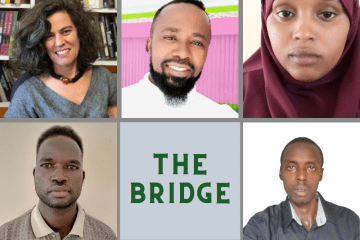
Join this important discussion with Laura Kunreuther, Professor of Anthropology, Bard College, and colleagues, who will discuss a year-long ethnographic research project about interpreting in the humanitarian context of Kakuma Refugee Camp in Kenya.
The research was designed to answer the following questions: What is entailed, materially and affectively, in standing between the UN field officer and the local source, speaking in two voices at once, neither of which is “one's own”? What happens, subjectively, when the medium for circulating the voices of so-called "global citizens" is another human being whose labor is often imagined as the output of a machine? What kinds of training programs (if any) have been developed for interpreters within the field, and how is interpreting work imagined by other professional staff in global organizations? At its broadest level, the research explores historical and cultural connections between the invisibility of field interpreters' labor and the bureaucratic ideals of transparency and global citizenship, asking how these ideals are embodied, or not, in the day-to-day work of UN missions.
Transformed into a virtual mode of ethnography due to the pandemic, the research was conducted with a team of humanitarian interpreters who were inspired to convert findings and research into a narrative film. The interpreters applied to and received their own funding through OSUN to cover the costs of learning filmmaking and producing the film. They then drew on collective research as the interpreters learned the skills of filmmaking to write and create a film that fictionally portrays the daily life of interpreters in the camp. The film is currently in the production stage and is called "The Bridge." This workshop will discuss the evolution of this project as it evolved from a traditional academic research project to a collective community project of self-representation.
Co-presenters:
Kamoso Jean Bertrand, Research Collaborator and Director of The Bridge
Adam Mohamad Bashar, Research Collaborator and Cinematographer of The Bridge
Majuto Niyonzima Chouchou, Research Collaborator and Main Protagonist of The Bridge
Mulki Mohamed Ali, Research Collaborator and Sound Recorder of The Bridge
Other workshops in the series feature leaders in the field of university civic engagement and run each month from February 2022 through July 2022, highlighting innovative community-university research in communities in the United States, Lebanon, Bangladesh, Uganda, Ghana, and Austria.
Lessons from Malaysia: The International Medical University Experience
- 1128 reads










Add new comment